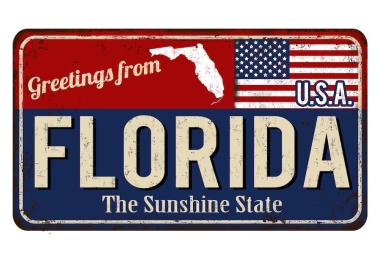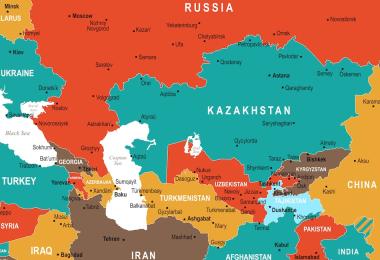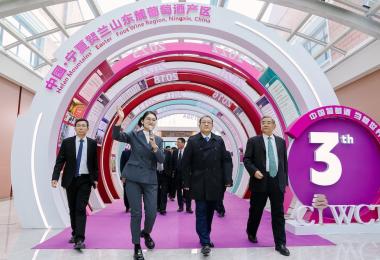Bordeaux and bold Shiraz are safe choices in Bangkok’s high-end wine world, while new wine styles and movements must tussle with cocktails for a place in the spotlight. Wine culture is slowly unfurling in Bangkok’s restaurants and wine bars, with on-trade sales firm, but retail sales are climbing as supermarkets and chain stores make everyday wines more accessible..
According to market research provider Euromonitor, Thai wine sales registered double-digit growth in 2018 in volume and value terms, rising 13% to 27ML. Still red wine captured 85% (23ML), of the Thai market, with big spenders favouring full-bodied French Bordeaux. In 2023, Euromonitor estimates Thail sales will record a compounded annual growth rate of 8% to exceed 40ML in volume.
Changing tastes
Pairach Intaput, a veteran of Thailand’s wine industry and advisor to the Thai Wine Association, said most high-value sales hail from Old World regions, with Italy supported by James Suckling’s ‘Great Wines of Italy’ event in November. The new old kid on the block, though, is Burgundy: “The region has experienced a rapid rise in interest and sales,” he says.
Bartender-turned-sommelier Jirachai ‘June’ Sethisakko, who worked in wine service for five years before becoming wine guru and director of beverage at Minor Hotels Group, says tastes have changed. While Thai people enjoy drinking full-bodied red wines – despite Thailand’s warm climate – Marlborough Sauvignon Blanc, Prosecco and local Thai wines strike a chord with tourists at Minor’s Anantara and Avani resorts, while young people pursue trends.
“We explore new wine styles like natural, biodynamic and organic, but the largest proportion of our sales come from well-known labels from famous regions,” says Sethisakko.
Wine lists are gradually offering greater variety to meet demand from well-travelled young Thais, and as restaurant owners and chefs focus on sustainable sourcing, says consultant and sommelier Kim Wachtveitl, managing partner at importer Wine Garage. “Regional and country diversity is gaining traction,” he observes.
Riedel Wine Bar offers a comprehensive list of wines by the glass, ranging from entry-level to super-premium, dispensed and preserved by Enomatic and curated by knowledgeable sommelier Dirake-rit Kotchawong. The natural wine movement, too, is supported by bars like About Eatery, Kangkao, The Rose Natural Wine Bar, Via Maris, Wet and the Wine Room by Harvest.
Local sommeliers
Thai sommeliers, once heavily outnumbered by foreigners, are now abundant in top positions at Bangkok’s leading hotels and restaurants. By thinking outside the box, they help advance wine culture and knowledge. Poor English proficiency remains a challenge, though, and on-trade wine sales are curbed by high mark-ups, unfavourable laws and taxes, and food pairing problems.
“It is quite a challenge to pair Thai food with wine, not only because of the way we serve food on the table, but also because Thai food contains every flavour – spicy, sour, salty and sweet – in one dish,” says Parani Chitrakorn, founder of WineSmart 101, who is researching a possible book on the topic.
Sommeliers and drinkers seeking wine information face the added challenge of limited resources. The Alcoholic Beverage Control Act forbids alcohol promotion, and restrictions on alcohol advertising and censorship mean there are no local wine magazines. “Wine tasting in private outlets is allowed, plus some PR activities, but there can be no photos of alcohol consumption, or of products and packaging,” Wachtveitl says.
There are, however, wine competitions and courses. Chitrakorn is a Certified Wine Specialist, International Bordeaux Educator, member of the Guild of Master Sommeliers, and Iron Chef Thailand judge. She says tasting events are good occasions for wine professionals and enthusiasts to gather and share information. September’s Food and Hotel Wine Fair and Competition attracts 30,000 hospitality professionals each year.
Rise of retail
A gradual shift to everyday wines is diverting sales to modern grocery outlets, where consumers purchase wine along with their daily groceries. Purchasing decisions are driven mainly by price and promotional support, with sales triggered by new products and discounts, according to Austrade. The average spend off-trade is Bt500-900 ($16.40-$29.50) versus the on-trade average of Bt1,200-2,000. In 2018, the off-trade accounted for nearly double, Euromonitor reports.
Major supermarket chain Central Group operates Central Wine Cellar and more than 200 supermarkets in six formats. Other retailers include Wine Cellar, Villa Market, Gourmet Market Siam Paragon, Wine Connection and Foodland, which has a delicatessen to complement its selection of Australian, French and American wines. Wine n’ About is an e-store and digital platform for wine sales.
Big brand wines are distributed through mail order, e-commerce and specialised outlets, but boutique wines require a personal touch, says Wine Garage’s Wachtveitl: “People want to know where the wines are from and speak to someone.”
One eccentricity that catches tourists off guard is the ban on individual alcohol sales between 2pm and 5pm daily. Sales are also banned on Buddhist holidays – even in bars and pubs.
Partner up
Only Thai companies can register wine and apply for an import permit, so appointing a good local partner is a must. Importers manage the administration of Thailand’s complex registration, duties, fees, taxes and distribution.
Bangkok Beer & Beverages Co (BB&B) employs more than 200 people and imports 3,000 labels. IQ Wines, which has offices in Thailand’s major cities, imports big brands and wines from major regions for hotels, restaurants and private customers. Independent Wine & Spirit (IWS) represents 500 products from 20 countries, a similar number to importer Vanichwathana, while Italasia Trading distributes its large portfolio of wines to the HoReCa segment.
Some importers go one step further and open their own retail or dining venues. The Wine Merchant operates wine bar and restaurant La Casa Nostra, whose Coravin-dispensed French and Italian wine-by-the-glass selection occasionally includes Château Margaux, Sassicaia or Opus One. The company also has an online wine app that promises to deliver wine anywhere in Bangkok within two hours.
Natural-leaning importers Fin Wine and Wine Garage focus on artisanal and low-intervention wines, a small but growing segment in Bangkok. Wine Garage’s portfolio features small quantities of 400 labels, with Atlan & Artisan its best-selling brand.
Local legends
Thailand is not well-known internationally for its domestic wines, but awareness is growing. Produced with both the advantages and pitfalls of Thailand’s tropical climate (no extreme weather, but more canopy and vineyard management) these ‘new latitude wines’ are winning when it comes to local food and wine pairing and educating Thai people. After early unsuccessful attempts, the threat of rot and fungal disease was overcome through viticultural adaptations, innovation and research.
Monsoon Valley by Siam Winery is known for its sparkling wines and wine coolers. Owned by Chalerm Yoovidhya, the Thai billionaire behind the Red Bull empire, the brand benefits from its affordability and strong distribution network. The winemaking team is led by German winemaker Kathrin Puff.
GranMonte Estate, owned by entrepreneur Visooth Lohitnavy, is another success story. Wine tourism goes hand in hand with winemaking at the family vineyard near Khao Yai National Park, which is operated by Lohitnavy’s daughters Nikki and Mimi. Nikki is the oenologist and hospitality manager of the estate’s guest house, restaurant and cellar door. “There are only a handful of wine producers in tropical environments,” she acknowledges. “Wine tourism is an opportunity to teach Thai people about wine, as well as to promote GranMonte.”
Lohitnavy became the winemaker in 2009 after graduating from the University of Adelaide, and GranMonte hasn’t looked back. In 2018, GranMonte won silver and bronze at the Hong Kong International Wine and Spirit Competition for her Sakuna Syrah Rosé and Viognier respectively. A year earlier, her Verdelho won gold and Best Wine from South East Asia at the competition, as well as scoring highly in many of the Asian food pairing categories, proving how friendly her wines are to Asian palates. “The awards help people feel confident about buying our wines,” she says.
Staying on-trend, she is experimenting with an organic plot and producing small batches of naturally fermenting wine.
Other local Thai wineries include Village Farm & Winery, PB Valley Winery and Silverlake Vineyard.
With local wineries benefiting from advantageous taxation, wine tourism and improved reputations, overseas producers must be on point in Bangkok. With a wine scene bursting from the wings, it is crucial to understand your audience, adapt your approach and partner up, because, despite a lack of government support for imports, Bangkok is filled with wine lovers wanting a show-stopping performance.
Debra Meiburg MW
This article first appeared in Issue 5, 2019 of Meininger's Wine Business International magazine, available in print or online by subscription.
You can also sign up to our free newsletter








